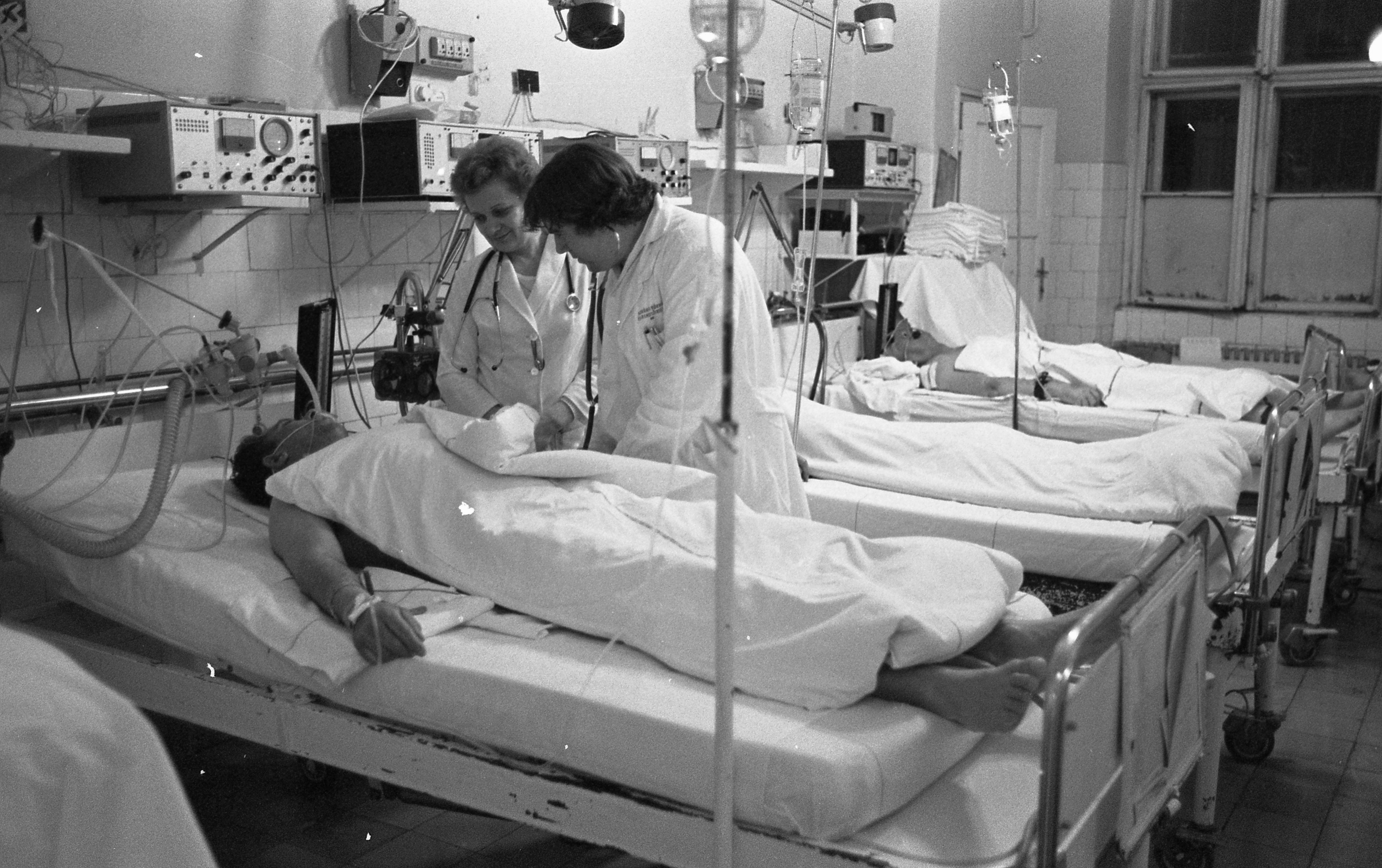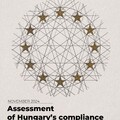News continues to emerge about the government's efforts to address the systemic issues in healthcare. Yet, waiting lists keep growing, severe resource shortages persist, and the private sector—operating with a lack of transparency—continues to expand. Citizens would likely have a clearer understanding of these developments if the Boston Consulting Group’s secret study that forms the basis of the government’s healthcare reform, were made public. K-Monitor has been fighting to make the document public since 2021. K-Monitor has now turned the matter to the Constitutional Court and the European Court of Human Rights.

Photo: Fortepan / Urbán Tamás
Overarching Reform Based on a Secret Study
In the summer of 2020, the Ministry of Interior, responsible for healthcare, commissioned the Hungarian chapter of the global consulting firm Boston Consulting Group. For a fee of €779,527 plus VAT, the company agreed to conduct a study on the state of Hungarian healthcare and provide recommendations for its “value-based transformation.”
BCG delivered the study on time in August 2020, and the Hungarian government subsequently enacted a series of laws based on its findings. However, the government has never made the study public, leaving doctors, healthcare professionals and patients in the dark about the healthcare system’s reorganisation.
Series of Lawsuits
K-Monitor first went to court in 2021 to push for the study to be made public. Initially, the court ordered its release. However, the appellate court overturned this decision, accepting the Ministry of Interior's point that protecting the confidentiality of the government’s decision-making process was more important than having the public informed. K-Monitor then turned to the Hungarian Constitutional Court (HCC), but it found no constitutional issue with the appellate court's ruling.
After the HCC's decision in January 2023, we submitted another data request to the ministry, hoping that the government’s decisions in the meantime would no longer justify keeping the study secret.The court heard testimonies from the then-head of the National Hospital Directorate-General and the president of the Hungarian Medical Chamber. However, the first-instance court ultimately rejected our claim, arguing that:
“Making the study public could lead to superficial conclusions and expose the civil servants responsible for drafting the laws of the reforms to unnecessary criticism, both positive and negative, which could unduly affect the work of those involved in any part of the reform process.” (Budapest-Capital Regional Court 29.P.21.902/2023/31., Reasoning, [49] section)
We successfully appealed the decision. The appellate court ordered the release of the study.
“The possibility of learning about and criticizing recommendations contained in a non-binding study does not in itself constitute unauthorized interference in decision-making related to legislation, nor does it undermine the implementation of decisions.” (Budapest Court of Appeals, 9.Pf.20.627/2023/4/II., Reasoning, [64] section)
In response to the final ruling, the Ministry of Interior sought an extraordinary review from Kuria, which this summer ruled entirely in favor of the ministry. The Kuria agreed with the first-instance court that not a single word of the study could be made public because:
“The information contained in the study and its annexes is so closely interconnected that separating the elements would result in incomprehensible data, making it impossible for the court to rule separately on the disclosure of individual parts of the document.” (Kuria Pfv.IV.20.474/2024/5., Reasoning, [59] section).
As a final domestic remedy, we once again turned to the HCC. In our complaint, we raised two main objections. First, the Kuria made its decision based on confidential documents, without the ministry providing any concrete facts during the trial, which prevented K-Monitor from properly challenging the Ministry of Interior's arguments. Second, K-Monitor objected to the Kuria’s ruling on several hundred pages of documents, blanketly declaring them all justifiably withheld from the public. According to K-Monitor, at most, there may be arguments worth debating for the partial classification of sections containing reform proposals, but not for the parts that present the state and problem map of the Hungarian healthcare system. Moreover, in our opinion, the entire document should remain accessible to the public.
In 2023, K-Monitor took legal action not only against the Ministry of Interior but also against BCG, the firm that produced the study. This is possible since the Hungarian FOI Act obliges entities that have been in financial relation with the Hungarian state to provide information on this relation. However, the court dismissed the case against BCG without examining the case on the merits, citing an HCC decision. In this decision the HCC found the Freedom of Information Act unconstitutional for not providing judicial remedy against companies receiving public funds. Since the government has not amended the law to fix this issue since 2020, companies, associations and foundations receiving public funds cannot be sued before court.
Due to the government's failure to act, K-Monitor turned to the HCC, but it rejected our complaint without examining the complaint on the merits. The HCC argued that it had already urged Parliament to address the issue. Since the government has not amended the Freedom of Information Act by the due date, the HCC concluded it could no longer impose any consequences against the lawmaker:
“(...) the lawmaker’s omission is a lex imperfecta, meaning a mandatory provision but without legal consequences, whose violation carries no sanctions (...).”
After the HCC’s ruling, K-Monitor decided to take the case to the European Court of Human Rights. K-Monitor argues that it is a violation of both freedom of expression and the right to an effective remedy that companies using public funds have been shielded from courts’ scrutiny for years when it comes to public interest data, which everyone has the right to access.
Why Do We Continue Our Efforts to Obtain the Study
After so many years of unsuccessful litigation, it’s natural to ask why K-Monitor continues its efforts to obtain the study, as litigation is not only time-consuming but also expensive.
K-Monitor persists because we believe that every Hungarian citizen has the right to access a study, funded by hundreds of millions of taxpayers’ forints, which the government uses to implement healthcare reforms. The state of healthcare is a matter that affects everyone in Hungary. In a democratic society, reforms that impact the entire society must be carried out transparently, with the involvement of stakeholders.
Our legal efforts to obtain the study have been regularly covered by 24.hu.
K-Monitor strives against corruption and promotes the transparency of public spending in Hungary. Support Us!
Címkék: english
Szólj hozzá!
A bejegyzés trackback címe:
Kommentek:
A hozzászólások a vonatkozó jogszabályok értelmében felhasználói tartalomnak minősülnek, értük a szolgáltatás technikai üzemeltetője semmilyen felelősséget nem vállal, azokat nem ellenőrzi. Kifogás esetén forduljon a blog szerkesztőjéhez. Részletek a Felhasználási feltételekben és az adatvédelmi tájékoztatóban.





